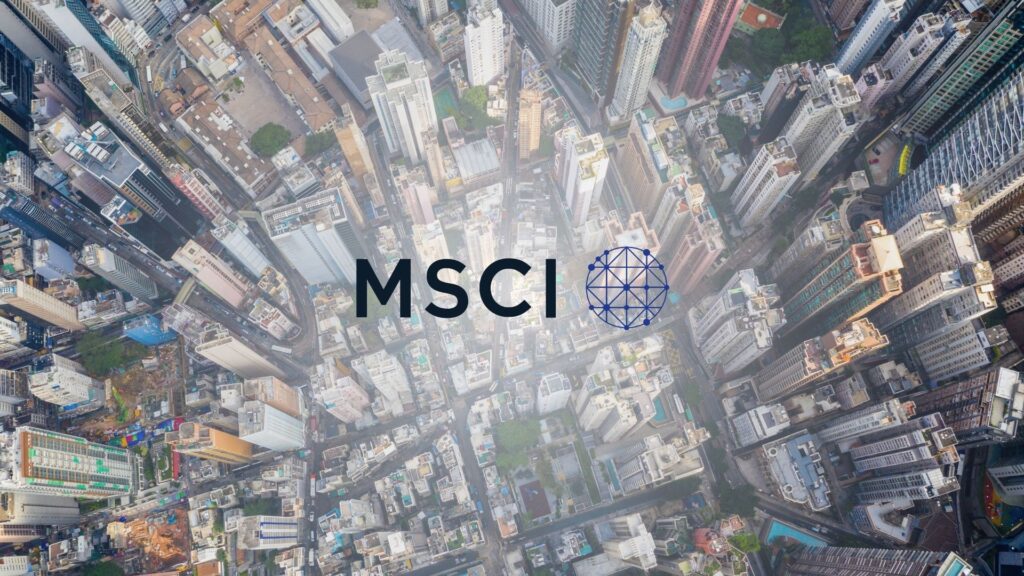MSCI Study Finds Higher ESG Ratings Lower Cost of Capital for Companies

- Higher MSCI ESG Ratings correlate with lower cost of capital.
- Significant ESG rating changes impact future financing costs.
- Industry-specific ESG risks play a key role in financing costs.
In a comprehensive study conducted by MSCI ESG Research, the relationship between MSCI ESG Ratings and the cost of capital for corporate equity and debt issuers was analyzed. The study revealed that companies with higher ESG ratings generally experience lower financing costs, both in equity and debt markets. This relationship holds true even after accounting for various factors such as home market, sector, and credit quality.
Correlation Between ESG Ratings and Financing Costs
The research identified a strong historical correlation between a company’s MSCI ESG Rating and its cost of capital. Specifically, companies that scored higher on the MSCI ESG Ratings scale were able to finance themselves at lower rates compared to their lower-rated counterparts. This trend was evident in both equity and debt markets. Jakub Malich, Vice President of Fixed Income ESG & Climate Research at MSCI, explained, “Companies assessed to be the most resilient to financially material sustainability-related risks consistently financed themselves more cheaply than those considered more vulnerable.” The data showed that the lowest-rated companies had an average financing cost of 7.9%, while the top-rated companies financed themselves at an average rate of 6.8% over the study period from August 2015 to May 2024.
Impact of ESG Rating Changes
Beyond the historical correlation, the study also explored whether changes in MSCI ESG Ratings could serve as a forward-looking indicator for the future cost of capital. While small rating changes (+/- one notch) did not show a clear pattern, more substantial changes (+/- two or more notches) did. Companies experiencing significant upgrades in their ESG ratings saw their cost of capital decrease in the following months, while those with substantial downgrades faced increased financing costs.”Although we did not observe significant changes in financing costs after small rating movements, we did observe a stronger directional relationship with more-pronounced rating movements,” said Anett Husi, Analyst in Fixed Income ESG & Climate Research at MSCI.
Industry-Specific Drivers
The study also delved into how different components of the MSCI ESG Ratings (Environmental, Social, and Governance pillars) influenced financing costs across various industries. It found that certain ESG issues were more financially material in specific sectors. For example, carbon emissions were a critical factor for the cost of capital in the oil and gas industry, while product safety had a significant impact in the aerospace sector. “Focusing on the sustainability-related issues that may be the most financially material for certain companies’ risk profiles may offer an even better understanding of what may drive the financing costs in different industries,” added Malich. For instance, in the construction materials industry, the cost of capital was strongly correlated with scores on carbon emissions and toxic emissions and waste. In the semiconductors sub-industry, key issues such as water stress and controversial sourcing were significant drivers of financing costs.
The study underscores the importance of MSCI ESG Ratings as a valuable tool for investors and companies. Higher ESG ratings not only correlate with lower costs of capital but also serve as potential indicators for future financing conditions. Companies that effectively manage their ESG risks benefit from cheaper financing, making ESG performance a critical aspect of corporate strategy.
“To turn the historical correlation into a forward-looking indicator, we tested if changes in a company’s MSCI ESG Rating had provided a signal for the future path of the company’s financing costs,” said Husi. “Significant rating changes indeed showed a directional pattern in the future financing costs.“
Related Article: Sustainable Fitch Appoints Marcy Block as Global Head of ESG Ratings
For companies and investors alike, integrating ESG considerations into decision-making processes can yield significant financial benefits. The findings suggest that continuous improvement in ESG performance is not only good for sustainability but also for financial health.
MSCI suggests that further research should focus on exploring the forward-looking capabilities of ESG ratings in more depth. Additionally, examining the impact of ESG ratings on other financial metrics and across different market conditions could provide deeper insights. The integration of ESG factors into investment strategies continues to evolve, offering new opportunities for enhancing financial performance while promoting sustainable business practices.








